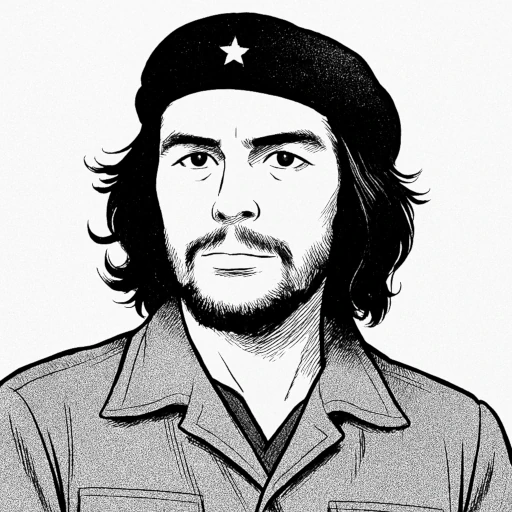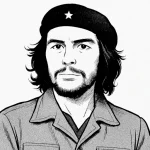“A political event was that I met Fidel Castro, the Cuban revolutionary. He is a young, intelligent guy, very sure of himself and extraordinarily audacious; I think we hit it off well.”

- June 14, 1928 – October 9, 1967
- Born in Argentina
- Revolutionary, doctor, writer, politician
table of contents
Quote
“A political event was that I met Fidel Castro, the Cuban revolutionary. He is a young, intelligent guy, very sure of himself and extraordinarily audacious; I think we hit it off well.”
Explanation
In this quote, Che Guevara reflects on his first meeting with Fidel Castro, a pivotal moment in his life and the history of the Cuban Revolution. Guevara describes Castro as a young, intelligent, and confident leader, highlighting the audacity and fearlessness that would come to define Castro’s leadership style. Guevara’s assessment of Castro reveals his admiration for the Cuban revolutionary’s charisma and strategic brilliance. Castro’s self-assuredness, coupled with his radical vision, was something that deeply resonated with Guevara, who himself was driven by a passion for social justice and revolutionary change. This connection between the two men would set the stage for their collaboration in the Cuban Revolution and their shared journey of fighting imperialism and oppression in Latin America.
Guevara’s use of the term “extraordinarily audacious” is especially telling, as it underscores one of the central traits that he admired in Castro: his willingness to take bold and sometimes seemingly impossible risks for the sake of revolutionary ideals. Castro’s audacity—particularly his decision to launch an armed insurrection in Cuba against the dictatorship of Fulgencio Batista—was a defining characteristic of his leadership and a trait that Guevara came to admire deeply. Castro’s fearless attitude in the face of overwhelming odds was something Guevara saw as essential to achieving meaningful change, and it was this audacity that Guevara believed could inspire others to join the struggle.
The meeting between Guevara and Castro, as described here, represents more than just the formation of a personal friendship—it signals the meeting of two minds committed to the same cause. Guevara, though a trained doctor, was deeply dissatisfied with his role in society and sought a path that would allow him to make a tangible difference in the lives of oppressed people. Castro’s revolutionary vision provided Guevara with a chance to be part of something larger than himself—an opportunity to actively challenge imperialism and capitalist exploitation in Latin America. This meeting marked the beginning of an enduring partnership that would ultimately shape the course of the Cuban Revolution and the future of Guevara’s own revolutionary career.
In modern terms, this quote highlights the importance of visionary leadership and audacity in any movement for social change. Like Castro, leaders today who seek to challenge the status quo often need to possess both conviction and the boldness to take risks in pursuit of justice. Guevara’s admiration for Castro’s audacity serves as a reminder that real change requires courage—the courage to take bold actions that challenge entrenched systems, even when success seems uncertain.
Would you like to share your impressions or related stories about this quote in the comments section?
